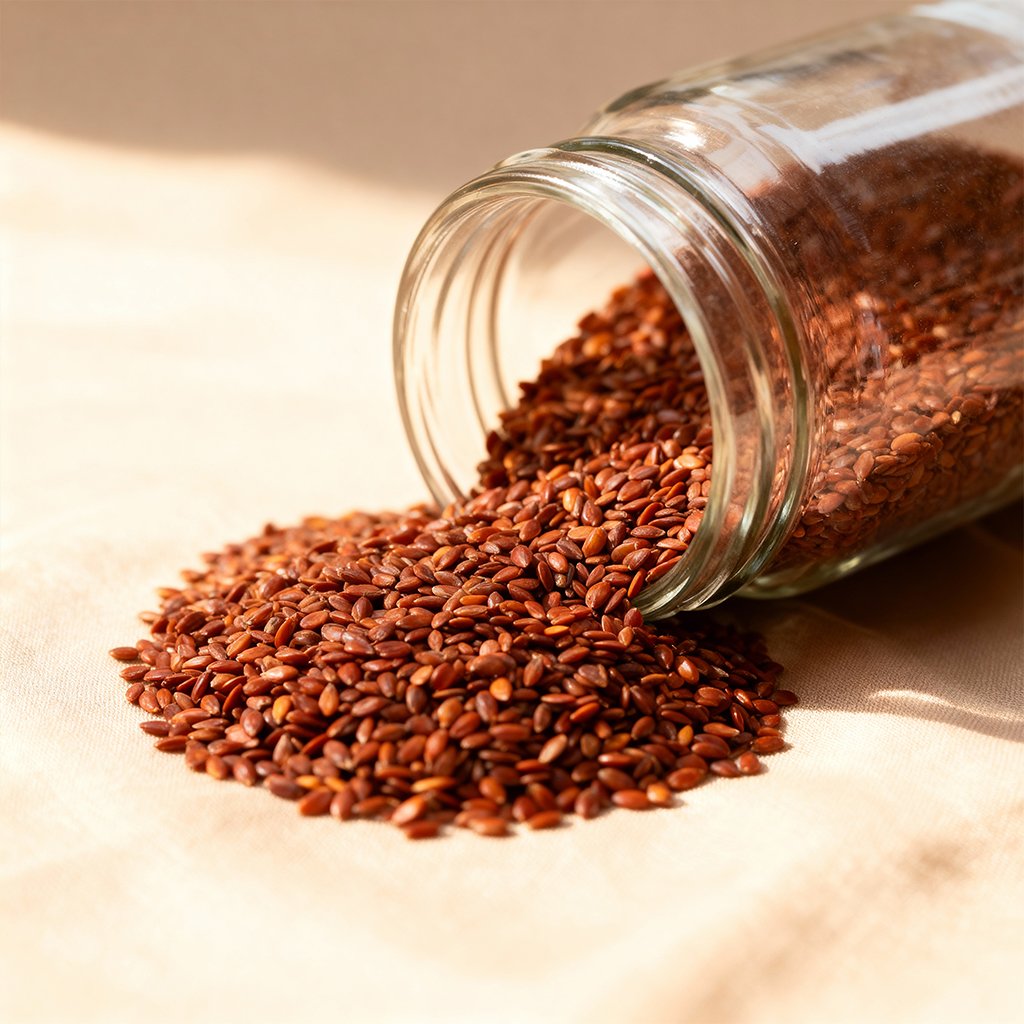seeds
Seeds are nature’s compact nutritional powerhouses packed with plant-based protein, healthy fats, fiber, vitamins, minerals, and antioxidants. They promote heart, digestive, and metabolic health while offering sustained energy and satiety. Regular consumption of mixed seeds supports cholesterol balance, regulates blood sugar, reduces inflammation, and improves overall vitality. Sprinkle them over salads, yogurt, or smoothies—or blend them into breads and bars—for an instant boost of flavor, texture, and nutrition.
View Our seeds
Chia Seeds
Chia seeds are exceptionally rich in omega-3 fatty acids (ALA), fiber, and complete plant protein. They absorb up to ten times their weight in water, forming a gel that supports hydration and digestion. Two tablespoons provide around 9–10 g of fiber, essential amino acids, and potent antioxidants.
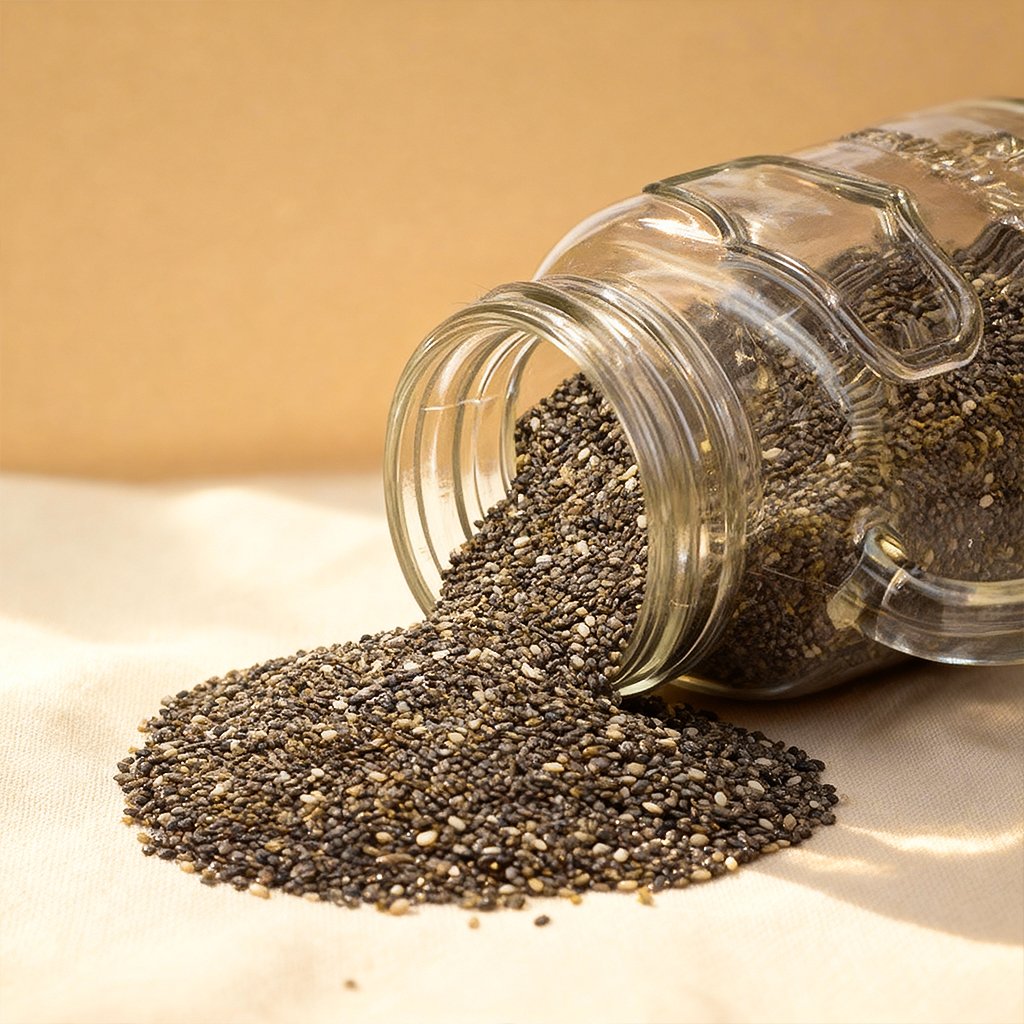
Flax Seeds
Flax seeds are one of the best plant sources of omega-3 fatty acids and lignans, known for their hormone-balancing and anti-inflammatory effects. Their high soluble and insoluble fiber content aids digestion and heart function.
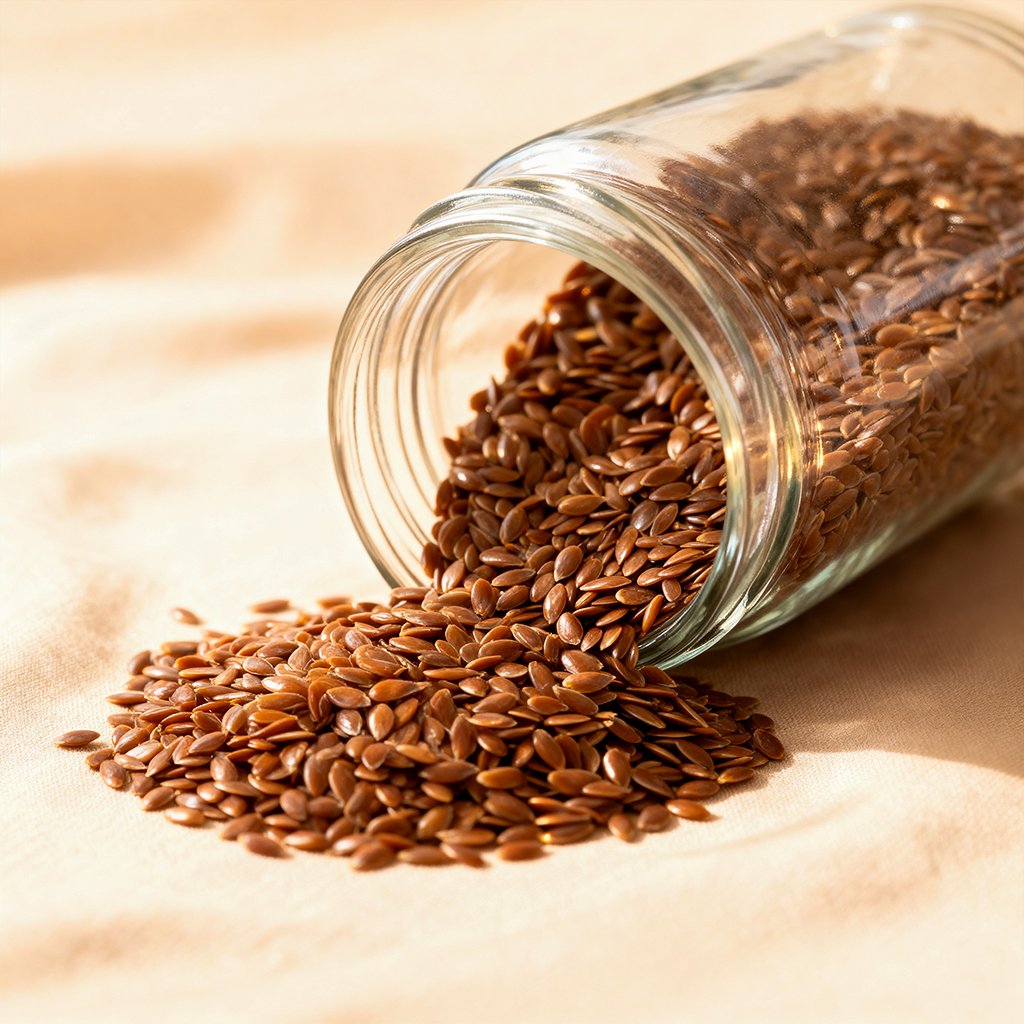
Pumpkin Seeds
Pumpkin seeds, or pepitas, are nutrient-dense, offering protein, magnesium, zinc, and iron—about 8–9 g of protein per ounce. Rich in antioxidants, they strengthen immunity and reduce inflammation.
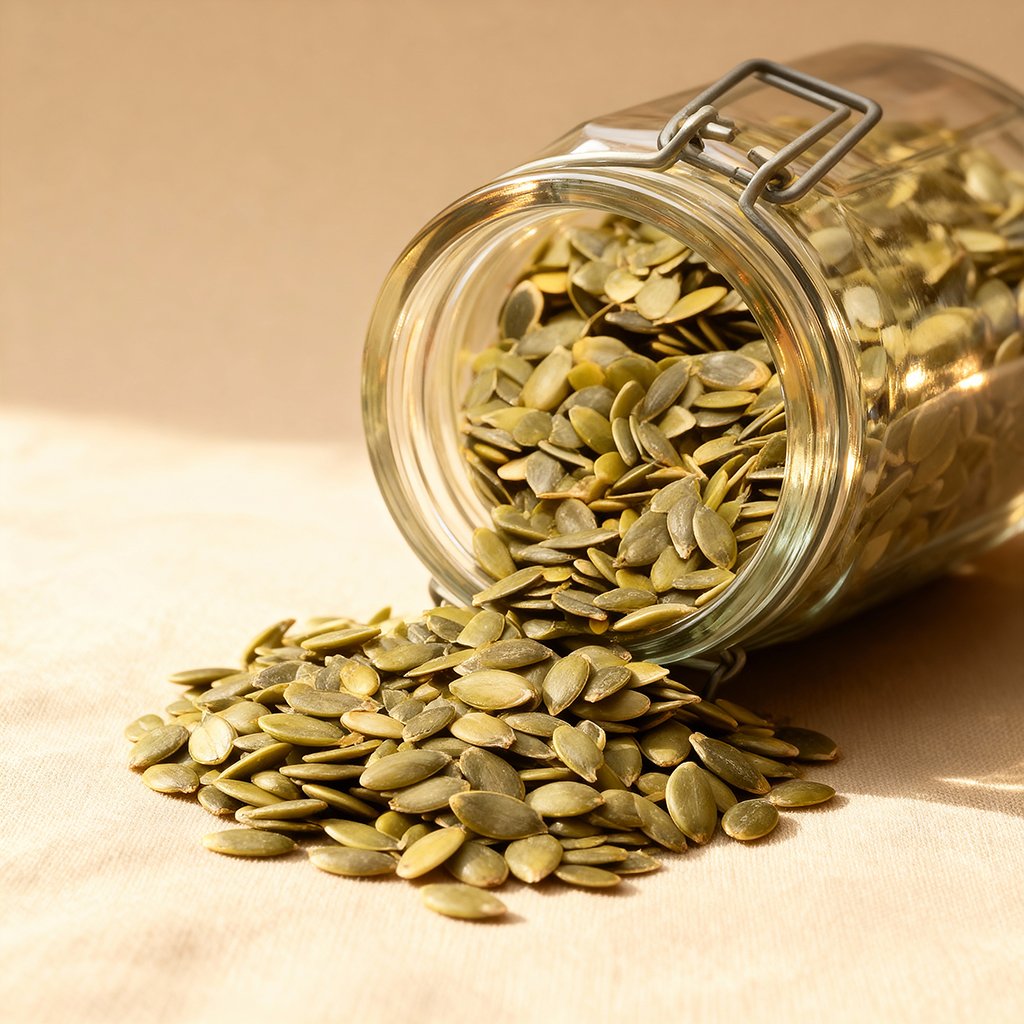
Sunflower Seeds
Sunflower seeds are loaded with vitamin E, selenium, and B vitamins, supporting skin repair, immune function, and energy metabolism. Their natural oils promote cell regeneration and cardiovascular health.
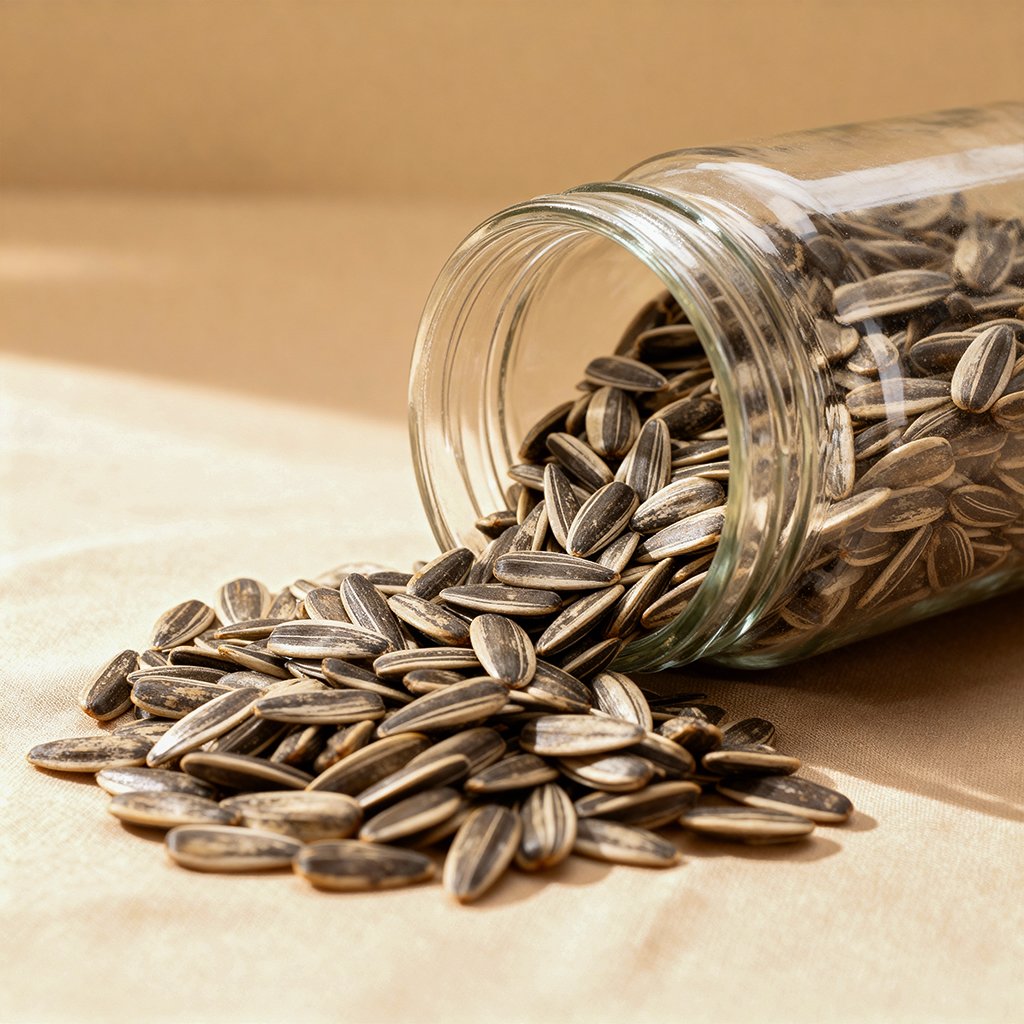
Sesame Seeds
Tiny yet nutrient-dense, sesame seeds contain calcium, magnesium, and lignans (sesamin, sesamol) that support bone strength and heart health. Their antioxidants help protect cells and regulate hormones.
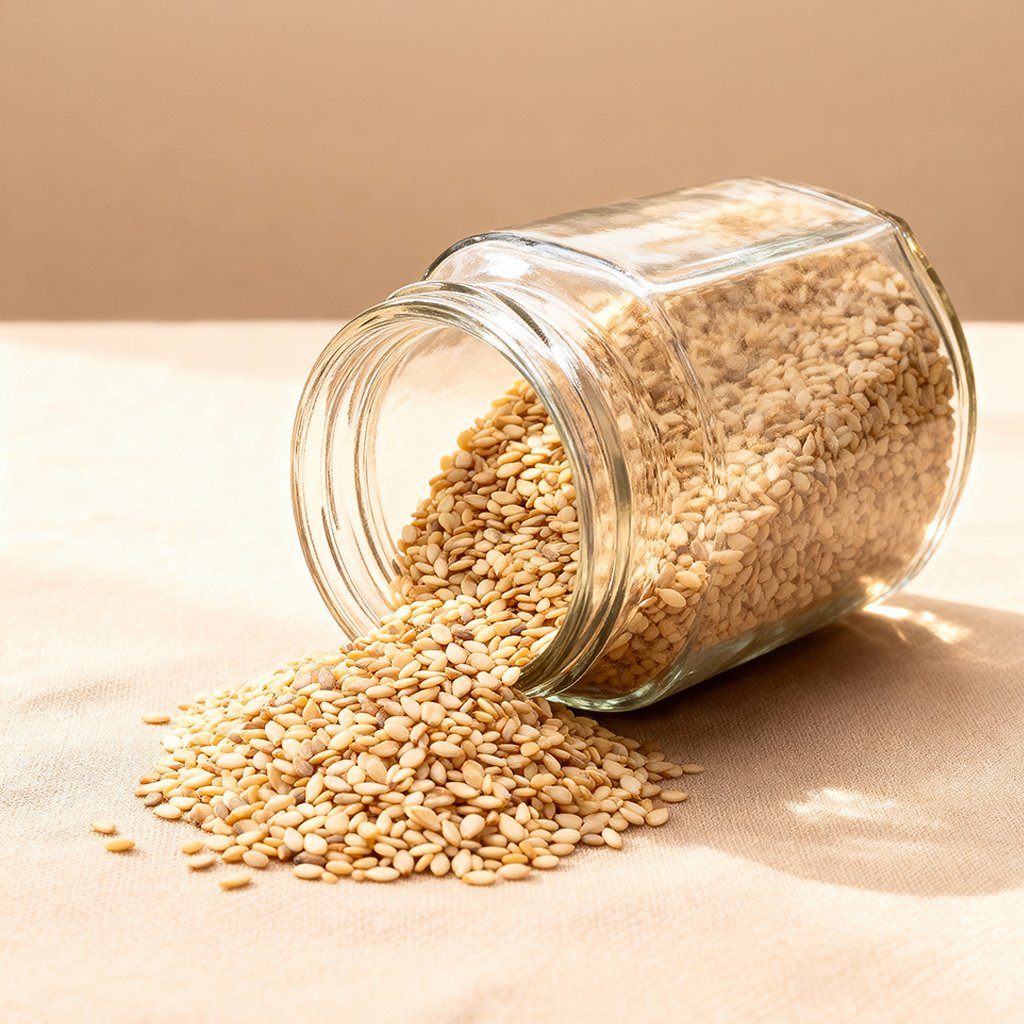
Muskmelon Seeds
Muskmelon seeds are a protein- and potassium-rich snack that supports heart, kidney, and metabolic function. Traditionally roasted, they’re light, crunchy, and satisfying.
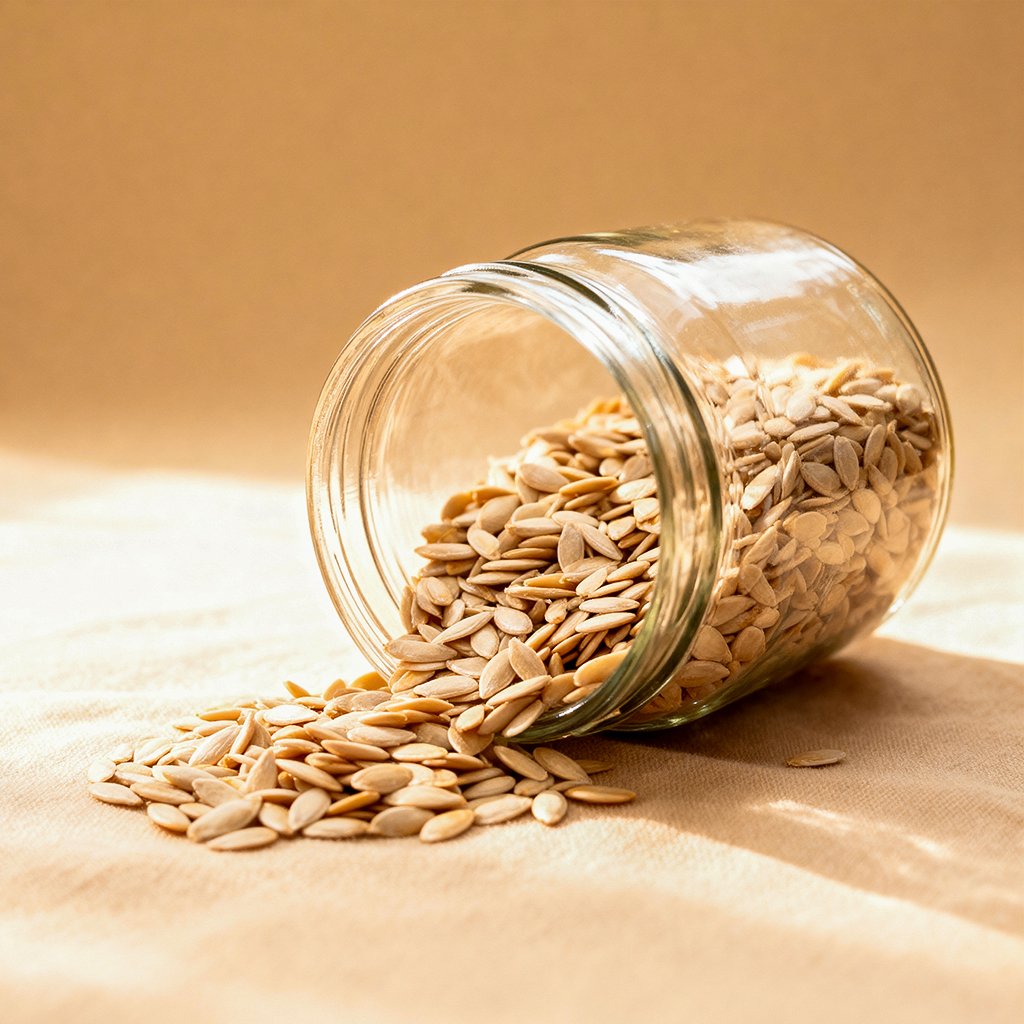
Basil Seeds
Also called sabja or tukmaria, basil seeds swell into a jelly-like texture when soaked in water, providing cooling and digestive benefits. High in fiber and minerals, they support gut and metabolic health.
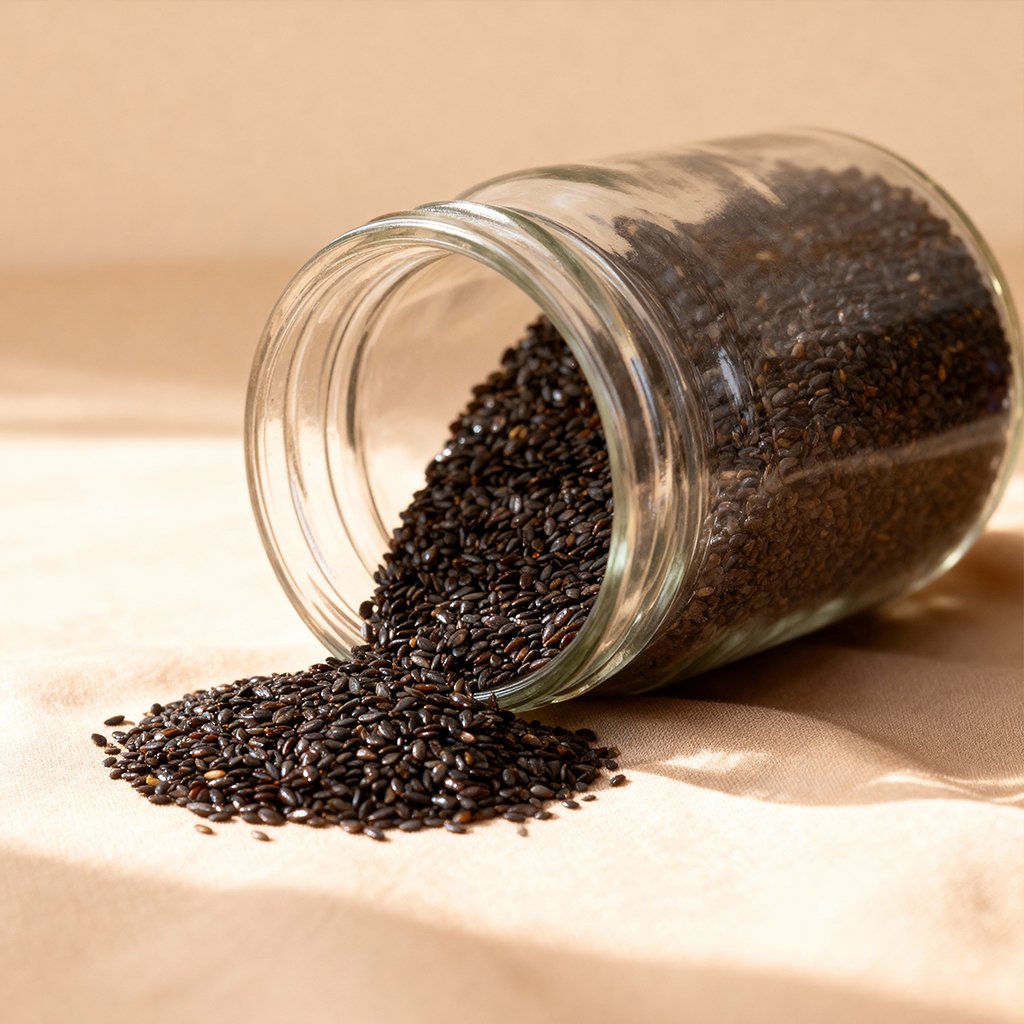
Poppy Seeds
Poppy seeds are tiny, oil-rich seeds loaded with calcium, iron, and magnesium. Their mild crunch and nutty flavor enhance both sweet and savory dishes.
Known for their gentle calming effects, they support relaxation and better sleep. Widely used in desserts, curries, breads, and fillings, poppy seeds add both taste and texture.
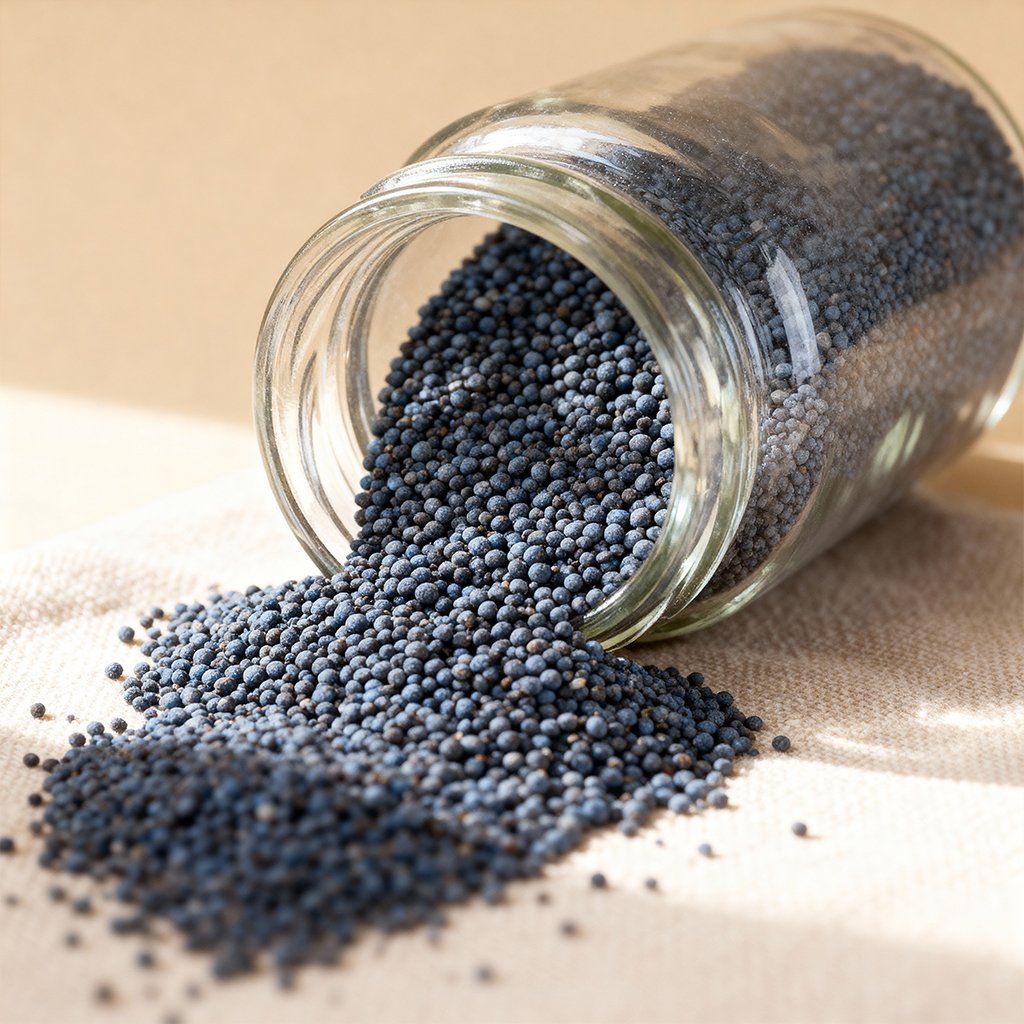
Watermelon Seeds
Watermelon seeds are a surprising source of protein, magnesium, zinc, and healthy fats, promoting energy and metabolism. Roasted or raw, they make a satisfying, crunchy snack.
They boost immunity and support heart and skin health. Add them to trail mixes, smoothies, or salads for a nutritious, high-protein addition.
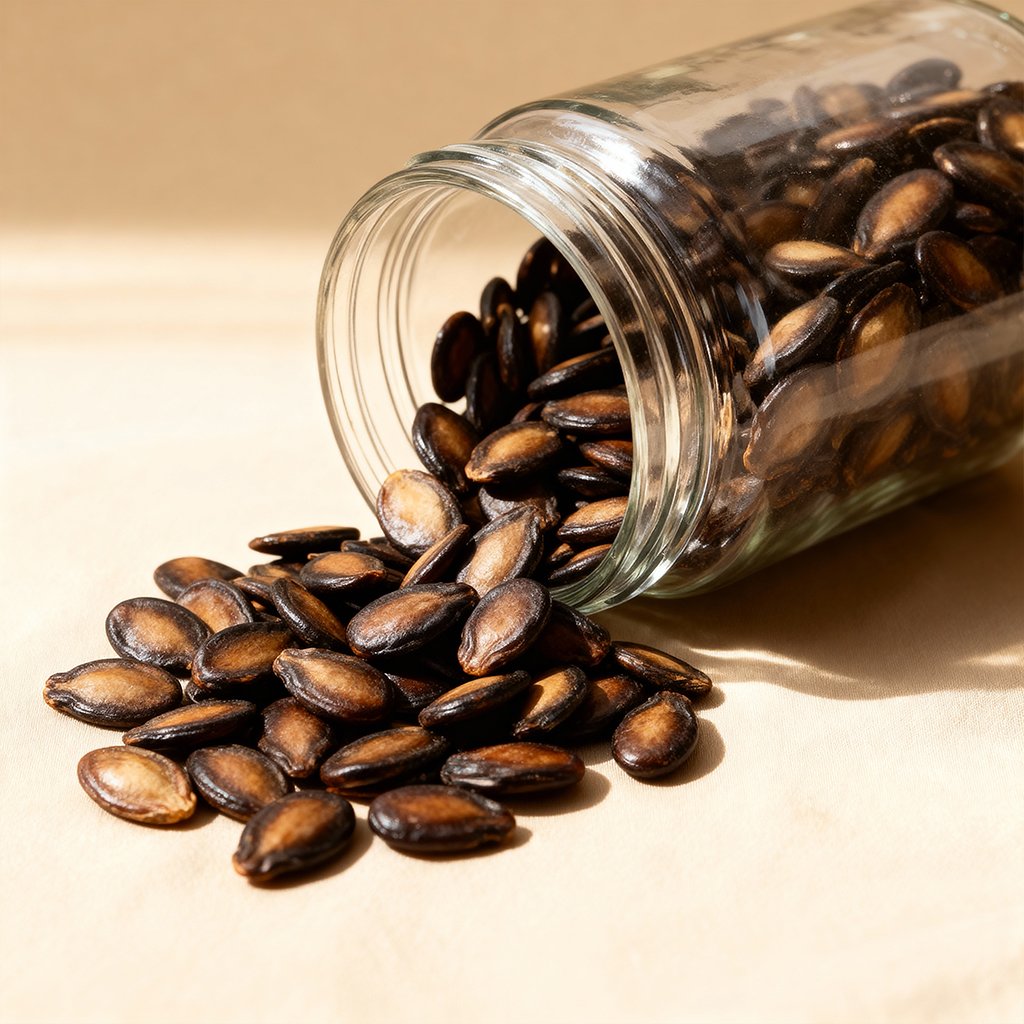
Hemp Seeds
Hemp seeds are a complete protein source containing all nine essential amino acids along with omega-3 and omega-6 fatty acids. They nourish the heart, brain, muscles, and joints.
Their mild, nutty taste complements salads, porridge, or yogurt bowls. Regular use enhances skin health, energy levels, and post-workout recovery.
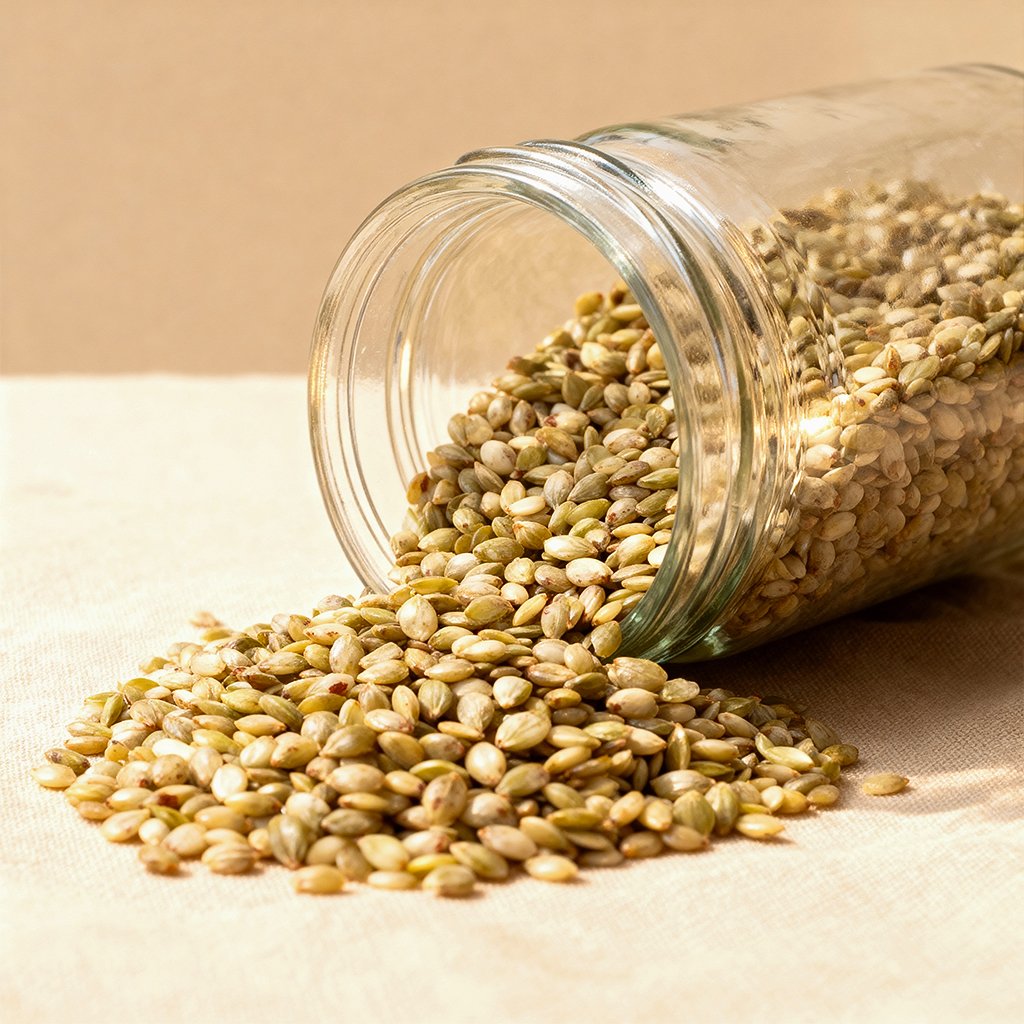
Quinoa Seeds
Technically a pseudocereal, quinoa is gluten-free and rich in complete protein, fiber, and minerals such as iron, magnesium, and manganese. Its light, fluffy texture makes it a global superfood.
Perfect for salads, grain bowls, or porridge, quinoa provides long-lasting energy. It’s especially beneficial for vegetarian, vegan, and gluten-free diets.
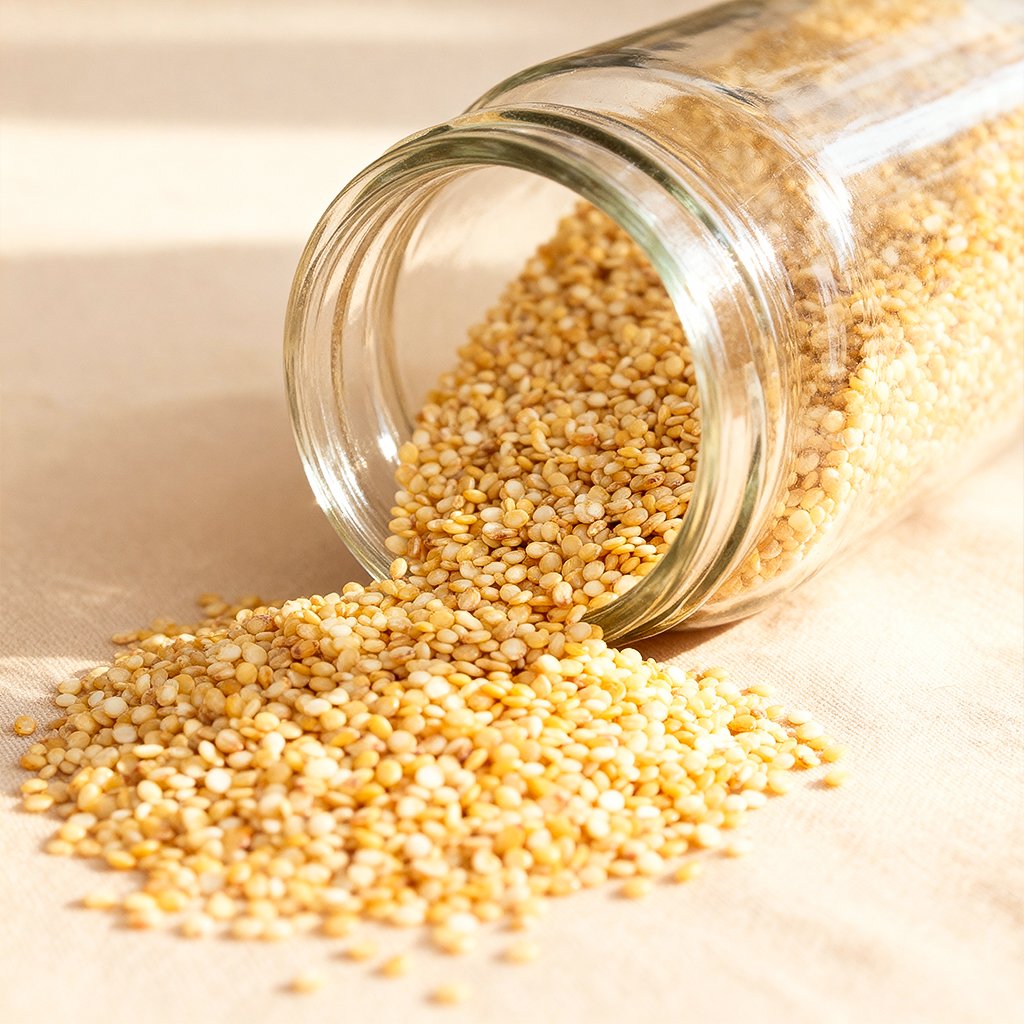
Garden Cress Seeds
Garden cress seeds, or halim, have a naturally peppery flavor and are packed with iron, folate, and vitamins A and C. They are known to boost hemoglobin levels and immunity.
Often soaked or added to milk, they aid digestion and support women’s health—especially postnatal recovery. Sprouted halim seeds also make a nutritious salad garnish.
